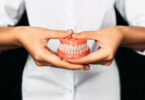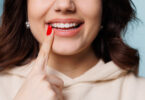Aging changes the body, and skin is not exempt. Aging skin becomes thinner, loses fats and no longer appears plump and smooth. Veins and bones become prominent and scratches and bruises heal slower.
One of the main culprits of aging skin is sugar. A diet, which contains large amounts of refined sugars, may cause skin to age prematurely through the formation of advanced glycation ends products (AGEs). To limit inflammation and control skin aging, it is important to avoid refined sugars.
When all types of sugar, fructose or glucose clinches onto fats and proteins, it begins a process called glycation. This causes the collagen to become inflexible and abnormal, as well as lose elasticity, causing wrinkles and accelerated aging. A good basic skin care regiment can prevent some of the side effects of aging skin.
Slow Down Time by Following These 12 Tips for Aging Skin:
Monitor Sun Exposure
Avoid the sun and wear UVA and UVB protective sunscreen daily—rain or shine, summer or winter. Always apply sun protective creams and lotions to all skin that is exposed. It is recommended to use a SPF 30 whether you are walking, lying out in the sun or driving. UVA rays can penetrate glass so it’s important to be protected. Apply sunscreens at least 20 minutes prior to being in the sun. Even delicate areas, such as the eyes and lips, need added protection, so look for lip balm and makeup products that have sunscreens in them.
Eat Well
A healthy diet can keep skin looking and feeling good. Continuous hydration improves blood circulation. A diet complete with fruits and vegetables contributes to skin health, especially foods high in vitamins A, C, and E, omega-3-fatty acids and selenium. Examples of those foods are sweet potatoes, bell peppers, citrus fruits, tuna, salmon, avocados and nuts.
Regulate Sugar Intake
Too much sugar over long periods causes skin to dull and wrinkle prematurely. Limiting sugar intake is not only good for your waistline, but great for aging skin
Decrease Alcohol Consumption
Alcohol dilates blood vessels in the skin and increases the blood flow near the skin’s surface. Blood vessels can become permanently damaged over a period of time resulting in a blotchy, uneven and red skin. Alcohol dehydrates the body resulting in unhealthy looking skin.
Moisturize
Protect your skin from weather to keep it soft and smooth. When temperatures take a dip below freezing, the skin needs special care against chapping and dehydration. Creams made with minimal amounts of water and maximum amounts of emollients keep skin well moisturized on the coldest days.
Hydrate
Staying hydrated is essential to skin protection. Hydration helps aging skin retain elasticity and prevent dry, scaly, flaky skin. The key to skin hydration is drinking lots of water. The skin cells are made of water, which renews skin.
Wash, Rinse, Repeat
Washing your face twice a day with a mild cleanser to remove dirt, oil and dead cells is important. Remember when washing to gently massage in a circular motion rather than scrubbing, which can cause skin irritation. Don’t forget to rinse thoroughly afterwards to remove soap and soap residue.
Exfoliate
This is a good way to keep mature skin soft and looking young. Buffing the dead skin away keeps pores from clogging. Exfoliating accelerates the skins natural rejuvenation and regular exfoliation keeps fine lines and wrinkles to a minimum.
Go Natural, Naked Skin is Happy Skin
Minimize your usage of makeup. It’s not necessary to be fully made up all the time. No matter how expensive the brands are your skin may become damaged. Let your skin breathe.
Manage Stress
Uncontrolled stress can make the skin more sensitive and cause acne breakouts and other skin problems.
Don’t Smoke
Smoking makes the skin look older by causes sagging, uneven tones, age spots, crow’s feet and loose skin under the eyes, and contributes to wrinkles. It also damages the collagen and elastin.
Sanitize your Smartphone
According to a recent study, cell phones can have more germs than a toilet. The germs land on your cheek and jawline causing spots and irritation. Wipe down your phone with an antibacterial wipe a few times a day to keep it bacteria-free.



